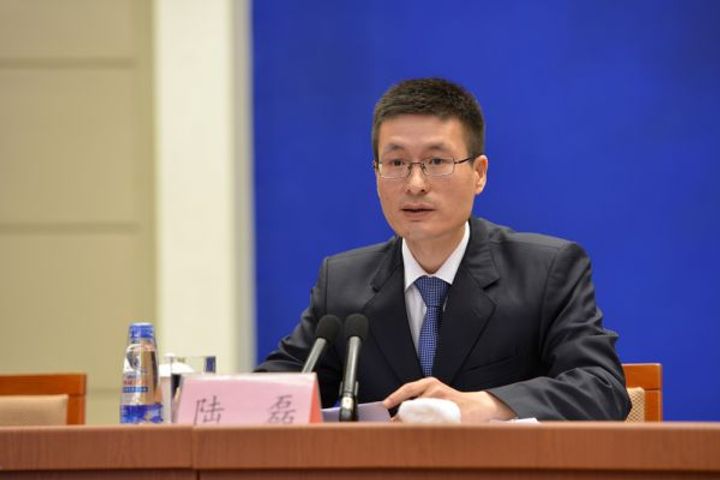 Short-Term Policies Can Never Change Global Industrial Chain's Division of Labor, SAFE Official Says
Short-Term Policies Can Never Change Global Industrial Chain's Division of Labor, SAFE Official Says(Yicai Global) August 12 -- Short-term policies can never change the division of labor in the global industrial chain, Lu Lei, deputy director of China's State Administration of Foreign Exchange, told Yicai Global in an exclusive interview. The United States' attempt to reshape the global industrial chain by initiating trade frictions will never work, he added.
"The restructuring of the world industrial chain depends more on a series of technological innovations, rather than on short-term policies," Lu noted.
China is currently transitioning to a stage of technological progress and innovation-driven development. It has developed strong competitiveness in terms of horizontal and vertical division of labor in the industrial chain, Lu said. Therefore, the idea of inciting China's manufacturing foundationby raising tariffs is against the basic laws of the market economy.
History has shown that the labeling of a country as a "currency manipulator" does not mean that country's economy will collapse or even face depression, Lu saidin response on the US Treasury's recent accusation that China was a"currency manipulator".
"The first wave of tariff hike was a sharp change from zero to one, which needed to be addressed seriously. But the follow-ups were merely quantitative changes," Lu commented on the possible impactofthe US tariff hikes and tariff list expansions, saying that Chinese regulators and companies have accumulated enough experience tocope with the US's tariff attack.
On the question of whether Sino-US economic and trade frictions have extended to the monetary and financial fields, Lu said: "There is a big gap between trade friction and financial war." Exchange rate fluctuation alone does not provide grounds for such a claim, he noted, adding: "We focus more on the real economy, but if it turns into a conflict on the financial level, we still have the means and confidence to cope with it."
Lu believes that at present, the People's Bank of China and SAFE have basically been able to provide early warnings on market changes and take proactive response to minimize the impact of market changes, so that the real economy, in the face of external shocks, has a soft cushion.
At the same time, regulatory authorities will continue to maintain policy stability, consistency and predictability;guarantee citizens' real and reasonable foreign exchange needs fortourism and overseas studies;and protect cross-border consumers and investors from unexpected impacts.
"China will not transform prudent macro-management into capital control," Lu stressed. "SAFE will unswervingly promote the liberalization and facilitation of trade and investment and contribute toChina's new pattern of full opening-up."
A strong and resilient domestic economy is China's most reliable support to cope with external changes. China's own business is more important to the country. It needs to focus on the real economy, and promote scientific and technological innovation with a down-to-earth attitude, so that the Chinese economy will keeprising toa higher level in terms of economic value in the global industrial chain, according to Lu.
China has the world's largest market, the most abundant and highly educated workforce, so Chinese should remain confident and work together to deal with short-term external shocks, he insisted.
Editor: Tang Shihua